
A few weeks after agreeing not to ask Alaska teens controversial questions about their gender identity and sexual orientation, some of Alaska’s leading health officials and state partners are now brainstorming ways to uncover this information without upsetting parents and local communities.
On Sept. 16, roughly 40 public health professionals and activists met via Zoom to determine which health-related questions the State of Alaska should ask high schoolers during the 2023 biennial Youth Risk Behavior Survey (YRBS) – a questionnaire which is administered during February and March at schools across the state.
Last year’s survey was cancelled due to Covid complications and the fact that some communities took issue with the state including a new question asking teens about their sexual orientation and gender identity.
Typically, the survey gathers information about teen drug use, home life and general health and wellbeing. The questionnaire also asks about various sexual activities, but has never pried into sexual orientation or gender identity.
Ferguson noted that state health professionals have to be careful about how they gather controversial information on youth.
Due to the lack of participation, the state was forced to cancel the entire survey last year.
While this year’s survey is expected to include a number of intimate questions about how many sexual partners teens have had, whether they use condoms and how often they engage in sexual intercourse, the state decided to leave out questions about gender identity and sexual orientation, for now.
Participants in the Zoom meeting were clearly frustrated by parents and local communities that raised concerns about including LGBTQ questions in the abandoned 2021 survey.
Towards the beginning of the three-hour meeting an extended conversation ensued about why Alaska’s Department of Health chose to withhold LGBTQ questions in 2023.
While all speakers agreed that the state should ask such questions, they noted that the entire survey would, again, be in jeopardy if they were included.
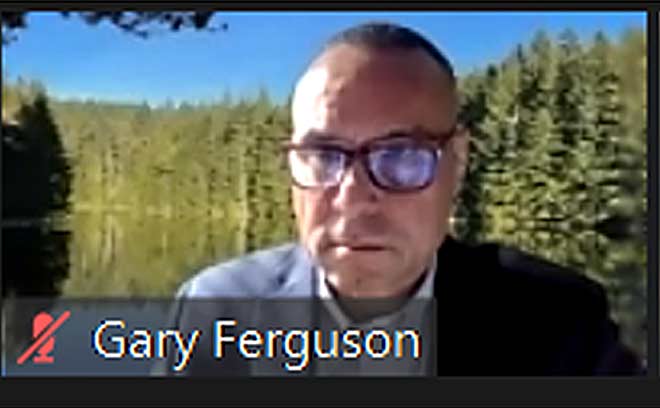
Gary Ferguson, the director of wellness and prevention at Alaska Native Tribal Health Consortium, served as moderator of the meeting, and was clearly in favor of asking gender identity, sexual orientation and other LGBTQ related questions.
“I know there is definitely some political sensitivity at this point, and of course we’re always looking after our children’s safety and wellbeing as first and foremost,” he told his fellow health professionals. “At the same time, we’re also looking at the YRBS, and the importance of this in all schools and systems opting in as much as possible to give us the data that will help us in a variety of health topics.”
He then asked Andrea Fenaughty, the State of Alaska’s deputy chief of Chronic Disease & Health Promotion, to explain why the state nixed LGBTQ questions for 2023.
Fenaughty began by reiterating the opinion that there was “a lot of value in those questions.”
“We also know that there are some different stakeholders that are concerned about those questions being on a youth survey,” she admitted. “And so being aware that there are some concerns and being aware that our goal, really, is to be able to have a successful YRBS so that we can collect all this information, we made a call – here at the Division of Public Health – for the 2023 survey to not include that question.”
Fenaughty added, however, that the decision was in no way intended to be permanent.
“That’s just for this survey, specifically, that that call was made,” she said. “Just to really ensure that we had statewide data, especially on the heels of not getting statewide data in 2021. We have quite a large gap now where we’ve not been able to monitor any of these things that the YRBS tracks, and we take that very seriously.”
Ferguson agreed.
“I think, when we look at the greater good, of course, we as public health professionals, know that there’s really important information that we want to get related to gender and sexual orientation,” he said. “And at the same time, we also need to be careful about the bigger picture of all of the topics and the greater good that they also serve.”
Ferguson noted that state health professionals have to be careful about how they gather controversial information on youth.
“Those are some difficult times in public health that we have to dance in, and definitely difficult for leadership to make those executive decisions,” he said.
A Sept. 23 email to the Watchman from the Department of Health’s communications office, reiterated that the state’s decision to exclude sexual orientation/gender identity questions was “just about this year’s survey and does not reflect a formal permanent change for future years.”
Rather than acknowledge that many parents and communities are morally or philosophically opposed to such questions, Lawton characterized the opposition as misinformed.
One participant in the Zoom meeting, Ze Cramer, went by the pronouns “they/them” and wanted to know exactly who was responsible for pulling the LGBTQ questions. ‘They’ asked who the “stakeholders” were that objected, and who had the final say on removing the questions.
Fenaughty said the state was generally aware of community concerns, and decided it wasn’t worth jeopardizing the entire survey by including LGBTQ questions.
When Cramer pressed her about who made the final call, and who specifically was opposed to the question, Fenaughty simply said the final determination came from the Division of Public Health.
“I’m not going to call out specific folks here,” she added. “I will just say we are aware of some concerns – that we have pretty substantial belief that there would be a challenge with having the survey be successful at all. And again, that’s not a statement from the Division of Public Health that this [LGBTQ information] is not something that we’re concerned about. We are very well aware of the public health implications and inequities that exist. Yeah, it was a very, very difficult decision.”
It is clear that upper leadership in Division of Public Health is attempting to direct policy in a manner that respects the concerns of parents, however there is also pressure being exerted within the division to find ways to work around the concerns of parents in the pursuit of information on sexual orientation and gender identity.
At this point, Christy Lawton, the State of Alaska’s Deputy Director of the Division of Public Health weighed in.
“The Division of Public Health does remain committed to this, and I think what we are focused on doing, and want to work with our partners over the course – you know after this survey is completed – is look at how do we continue to have dialogue with community and with people who may have concerns,” she said.
Rather than acknowledge that many parents and communities are morally or philosophically opposed to such questions, Lawton characterized the opposition as people who are simply misinformed.
“There is often just a misunderstanding about the survey and how it’s administered and the fact that parents do have to opt their kids in and give permission,” she said. “And I think if we could do some work around that to just increase the understanding and awareness of the survey, I think we will be in a different position when we look at evaluating the additional – adding those questions in a future survey.”
Wendy Williams, a nurse consultant for the state, agreed that it was important to find out if parents were discussing sexual issues with kids.
In the meantime, she said the state could gather LGBTQ information about teens by “looking at different ways that we can work with partners to collect that important information and share that as broadly as we can.”
Bennett’s Sept. 23 email to the Watchman explained that the Division of Public Health “relies on many sources of data and information in the course of its work – this YRBS survey is only one tool for data collection.” He added that the state doesn’t share information that could identify individuals.
During the Sept. 16 Zoom meeting a discussion ensued about whether the state should require parents to proactively opt their children out of the questionnaire, rather than continue with the current parental opt-in policy. It was suggested that by forcing parents to take the extra step of opting children out of the survey, there might be greater participation, overall. As things currently stand, the opt-in model presents a “huge barrier” when it comes to adding controversial questions, one participant observed.
While LGBTQ question won’t be in the 2023 survey, there will be a number of questions that pry into teens’ sexual activities, or lack thereof.
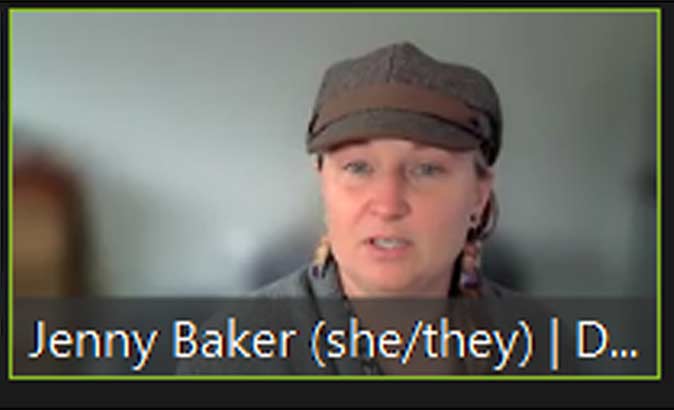
The state’s Adolescent Health Project Coordinator Jenny Baker kicked off this part of the Zoom meeting as the “subject matter expert” for sex questions.
Baker began by lamented the fact that the state was only able to ask youth about “sexual intercourse” rather than alternative sex acts that some LGBTQ people are known to engage in.
“The challenge with this is that obviously sexual intercourse is between a male and a female and it is quite exclusionary of other sexual identities,” Baker noted.
That said, the state still wants to ask teens about sexual practices, even if questions are limited to “sexual intercourse,” which Baker said does not account for “any other sexually diverse populations.”
At one point, Baker noted that the state plans to include a question asking teens whether they have talked to their parents about HIV/AIDS.
This question, she noted, will serve to reveal to state officials whether parents are actively talking about sexual matters with their children. This information, she said, is key to determining parental engagement, and will ultimately help the state determine where it needs to step in with regard to providing sex education in general.

Several other participants agreed that the HIV question could serve a larger purpose by revealing whether parents are truly providing adequate sex education to their children.
Thomas Azzarella, Executive Director of Alaska Afterschool Network, acknowledged that asking youth about sexual matters is challenging.
“Sexually transmitted disease and things of that nature – that is one of the big pushbacks. We get a lot around sex education in our schools,” he said. But Azzarella agreed that asking teens about whether they’ve had HIV/AIDS discussions with parents is a “great opportunity to find out whether Alaskan parents are indeed speaking to their children about sexual health.”
Lauren Kelsey, a public health specialist for the state, said the HIV question could reveal valuable information to policy makers about parent-child conversations regarding sex.
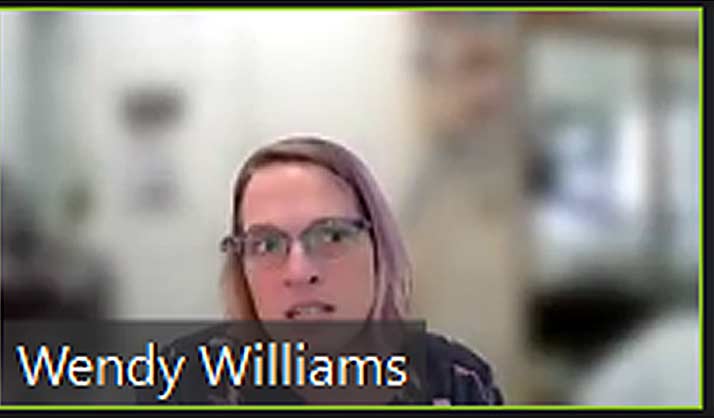
“I think there is strength to being able to say how much people are talking to a parent or guardian,” she said. “But I wonder if there’s going to be some challenges with how it’s worded right now.”
Wendy Williams, a nurse consultant for the state, agreed that it was important to find out if parents were discussing sexual issues with kids.
“I know for us, from a school standpoint, the topic of sexual health education can be quite contentious, and a lot of times the teachers doing these feel their hands are a bit tied,” she said.
Williams said the main objection parents cite when pushing back against sex education is, “Well, we teach this in the home – we don’t want it taught in the school.”
She said the YRBS survey will clarify whether teens are, in fact, having these conversations with parents.
“Are they talking to someone at home or another trusted adult to get that education or not?” she said.
TAKING ACTION
— Click here to contact Gov. Mike Dunleavy.
— Click here to contact Youth Risk Behavior Survey Data Manager Tazlina Mannix, or call 907-269-8107.
— To contact Adam Crum, Commissioner of the Alaska Dept. of Health and Social Services, email adam.crum@alaska.gov or call (907) 269-7800.

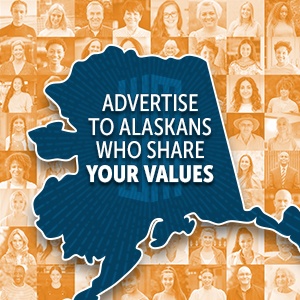


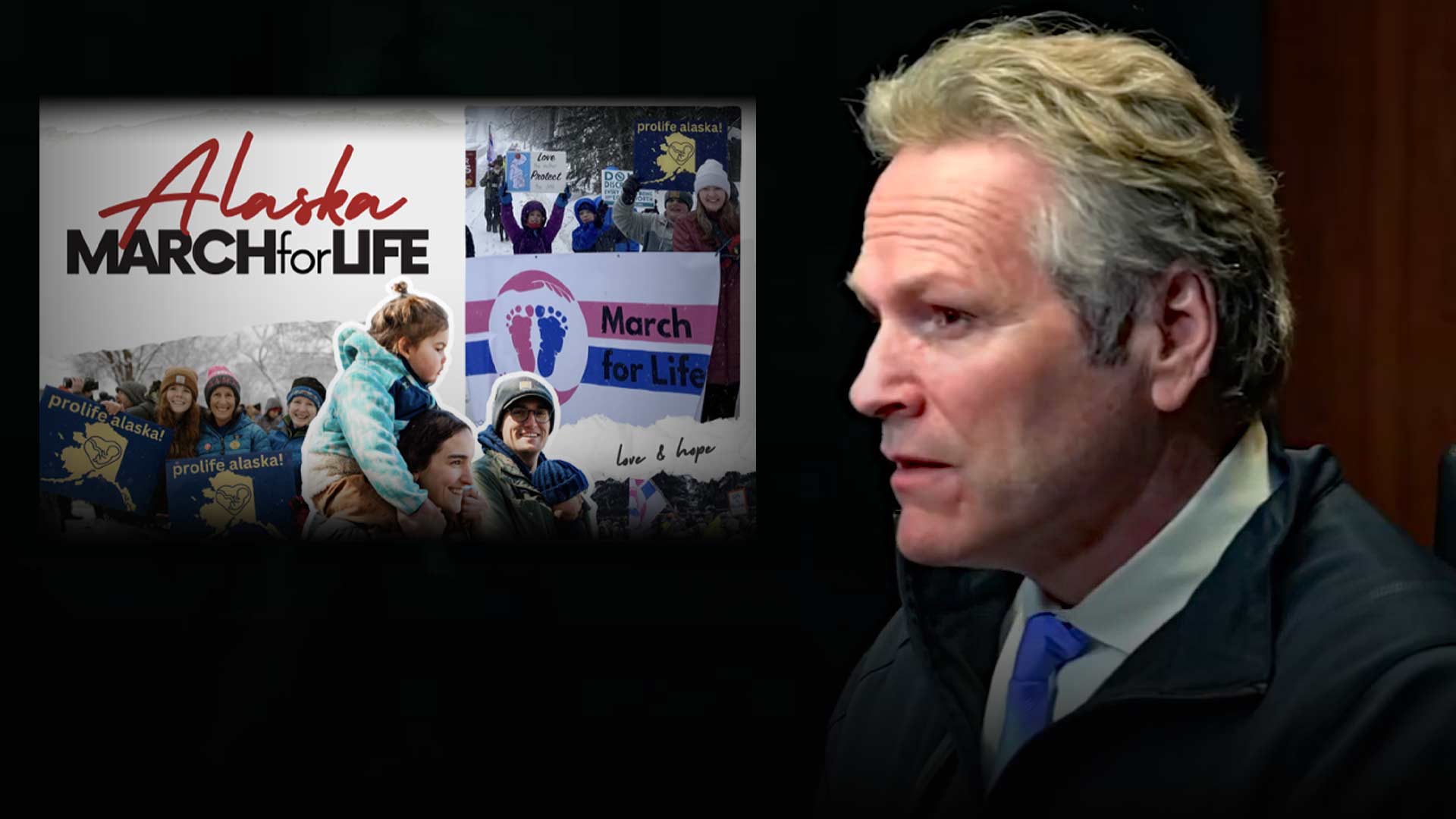



13 Comments
I guess I’m still to old school. I think the information might be good to have but it’s not tge school or some health clinic person to come right out and ask it. It a teen is coming in for AIDS/HIV then find out who/how/what happened is ok. For you to out right ask is not ok. If we have an AIDS/HIV out break that might be a better avenue to ask those questions. I’m still against it being on your survey.
What to do they do with this data? Decide more money needs to be spent somewhere, telling kids its OK to be whatever and to do whatever?
It is all so stupid. When we filled this stuff out in school, we would all just answer with the most ridiculous answers, we knew we were messing with the data results. Such a waste of time and money. Stick to teaching the basics (which they are terrible at currently) and leave kids and families alone.
And we wonder why academic outcomes are so poor. Schools need to get back to teaching relevant subjects. And simply teaching. Certainly a class in sex Ed is well and good but should be simply providing factual information, minus any social engineering, or prying into the privacy of families and students.
Schools are used for teaching the kids
reading, writing and arithmetic, ONLY.
Teachers need to shut up, and stop trying to brain wash our kids, that your a girl not a boy, Disgusting and sick.
Decades ago Karl Marx said the overthrow of nations by communism would be tied to the sexual revolution and sexual orientation would be a big part of that. How right he was.
Karl Marx lived and died way before the sexual revolution occurred. He never wrote a word about the sexual revolution nor sexual orientation. Neither was even a concept during the time he was alive. It was not until the 1970s and later when Marxist ideas were extended to sex, sexuality, and human reproduction.
None of the State’s business. It has far overstepped its health role by delving into private matters and encouraging deviant and aberrant behavior. State government needs to be shrunk from the money gulping entity it is, and Dunleavy had the means and power to do it but has let it go out of fear.
We are NOT misinformed. The State is out of line and looking for ways to justify their positions. When did academics cease to be important??? We now have found out that the teacher’s union gets a blank check from the state without accountability. This is the opening we need for school choice. It is also one reason we need a Constitutional Convention to put the teachers back in line where they teach the core subjects, the 3 R’s, since Alaska state is rated at the bottom academically. Educators are not doing well with academics, why give them more power to use our kids as guinea pigs for their sexual experimentation. They need to get their noses out of the family. These so-called experts claim to care so much about our children but have lost track of their purpose which is to work with and help the communities and families to raise up good citizens. Their sexual approach by so called educators is disregarding boundaries. The educators need to go back and learn what boundaries are about. Educators have NOT been hired by communities to pry and make assumptions about the matters that are none of their business but the business of the families and churches. This sexual intrusion is feeds through the health departments in every state. The originators of this trash are in Chicago, New York , and other “swamps” that have a goal of destroying the traditional family and alienating parents and children from each other…destroying Western Civilization values. Go back to the Boy Scouts oath and badges to be earned. Those values are what train up children/teens into good citizens, not creating yet another secular way to interfere with families and to justify their jobs which do not need to exist .Get back to what works not toward encouraging immoral and confusing behaviors in our future citizens. .
It’s not their business. If they persist, a class-action sexual harrassment suit should be filed.
Why should parents have to defend their their morality to Governor Dunleavy’s employees, whose salaries parents are forced to pay?
.
While we like Governor Dunleavy, we wonder why he hasn’t summarily fired this worthless filth from their overpaid State jobs.
.
Parents aren’t completely defenseless. They have the options…and disenrolling their children from the septic swamp that is Alaska’s public-education racket.
.
To Mr. Editor, may we suggest sharing this article with Fox News commentators such as Tucker Carlson, Sean Hannity, or Laura Ingraham. The publicity might help speed up a solution, especially in this election year.
Why do these leftists want this information anyway? Are they all just perverts?
Thank you Morrigan
We owe nothing to Dunleavy or his minions! I mean nothing! He sits quietly by while the state he ” oversees” is destroyed from both within and without!
He and his administration is the target that ought to be eliminated!
Can I get an amen, we need a leader not a Dunleavy!!!
I don’t understand why parents are like this. Grow up.